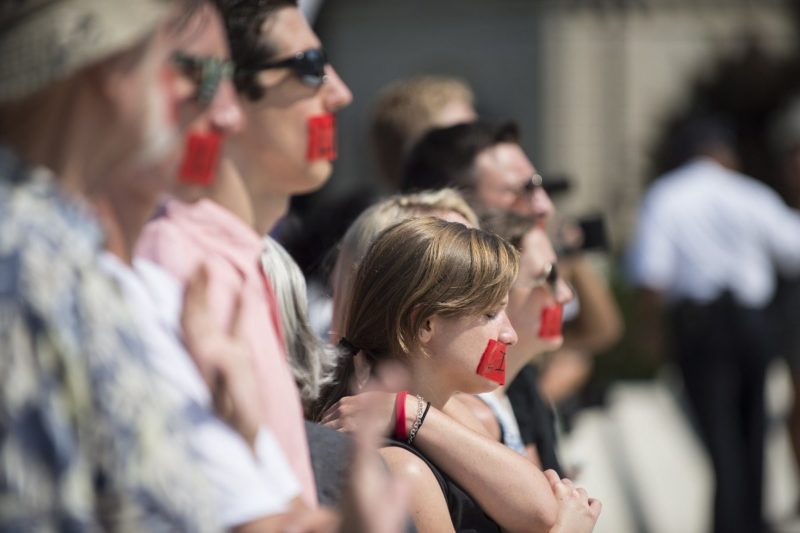Anti-Choice Group: End Clinic ‘Bubble Zones’ for Chicago Abortion Patients
Chicago officials in October 2009 passed the "bubble zone" ordinance with nearly two-thirds of the city aldermen in support.

An anti-choice group has announced plans to file a lawsuit and launch a public protest over Chicago’s nearly seven-year-old “bubble zone” ordinance for patients seeking care at local abortion clinics.
The Pro-Life Action League, an anti-choice group based in Chicago, announced on its website that its lawyers at the Thomas More Society would file the lawsuit this week.
City officials in October 2009 passed the ordinance with nearly two-thirds of the city aldermen in support. The law makes it illegal to come within eight feet of someone walking toward an abortion clinic once that person is within 50 feet of the entrance, if the person did not give their consent.
Those found violating the ordinance could be fined up to $500.
Harassment of people seeking abortion care has been well documented. A 2013 survey from the National Abortion Federation found that 92 percent of providers had a patient entering their facility express personal safety concerns.
The ordinance targets people seeking to pass a leaflet or handbill or engaging in “oral protest, education, or counseling with such other person in the public way.” The regulation bans the use of force, threat of force and physical obstruction to intentionally injure, intimidate or interfere any person entering or leaving any hospital, medical clinic or health-care facility.
The Pro-Life Action League lamented on its website that the law makes it difficult for anti-choice sidewalk counselors “to reach abortion-bound mothers.” The group suggested that lawmakers created the ordinance to create confusion and that police have repeatedly violated counselors’ First Amendment rights.
“Chicago police have been misapplying it from Day One, and it’s caused endless problems for our faithful sidewalk counselors,” the group said.
The League said it would protest and hold a press conference outside of the Planned Parenthood clinic in the city’s Old Town neighborhood.
Julie Lynn, a Planned Parenthood of Illinois spokesperson, told Rewire in an email that the health-care provider is preparing for the protest.
“We plan to have volunteer escorts at the health center to make sure all patients have safe access to the entrance,” Lynn said.
The anti-choice group has suggested that its lawsuit would be successful because of a 2014 U.S. Supreme Court decision that ruled a similar law in Massachusetts unconstitutional.
Pam Sutherland, vice president of public policy and education for Planned Parenthood of Illinois, told the Chicago Tribune back then that the health-care provider expected the city’s bubble zone to be challenged following the 2014 decision.
But in an effort to avoid legal challenges, Chicago city officials had based its bubble zone law on a Colorado law that created an eight-foot no-approach zone within 100 feet of all health-care facilities, according to the Tribune. Sidewalk counselor Leila Hill and others challenged that Colorado law, but the U.S. Supreme Court upheld it in 2000.
